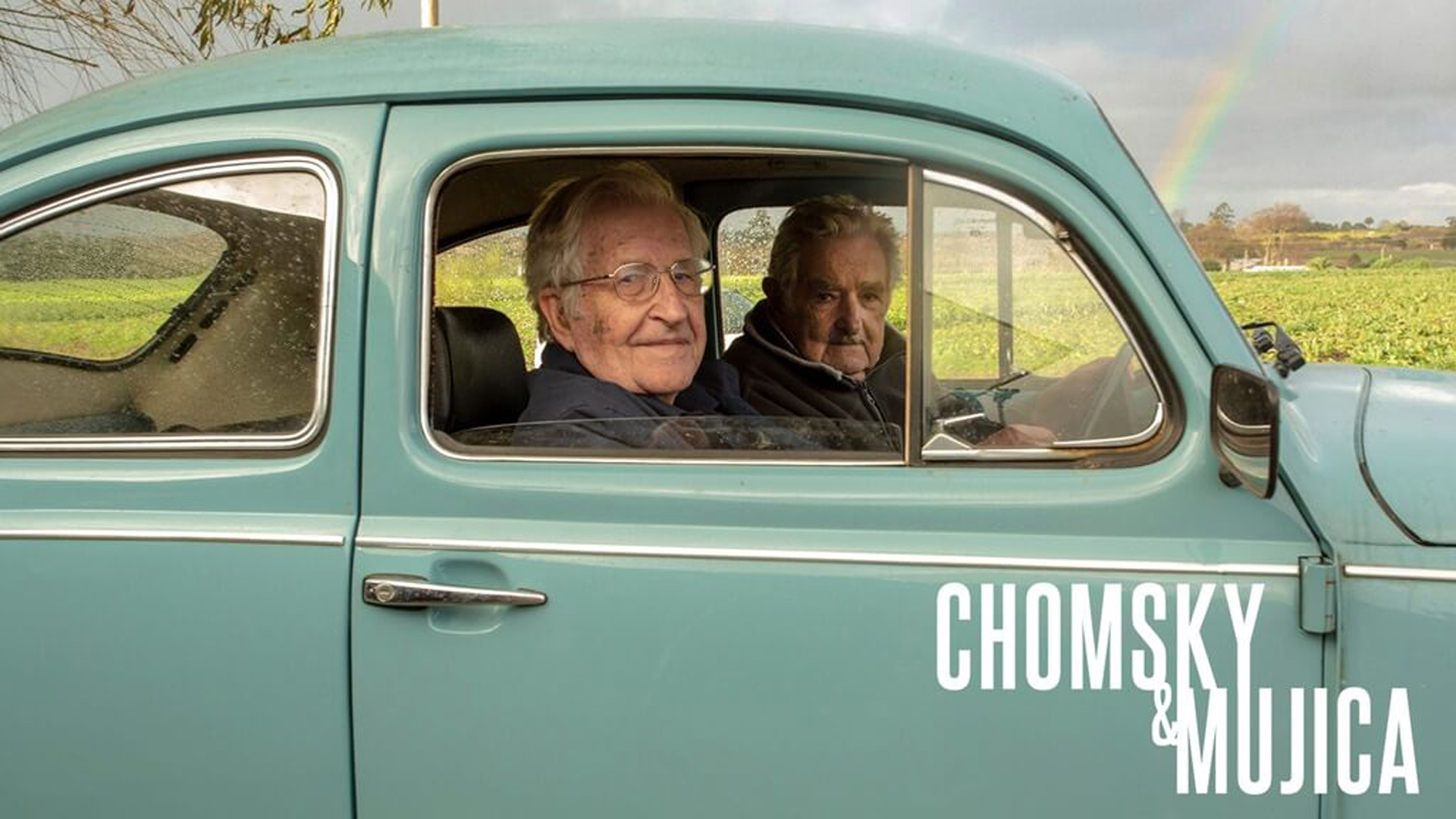
Noam Chomsky and José Mujica: a conversation about politics, freedom and love. Part 1
We spoke with Saúl Alvídrez, the director of the documentary "Chomsky & Mujica," who brought together two of today's brightest minds in a conversation.
In 2017, Saúl Alvídrez made it possible for Noam Chomsky to travel from Boston to Montevideo and visit José "Pepe" Mujica, the former Uruguayan president, in his home. Accompanied by their wives, Valeria and Lucía, Chomsky and Mujica spent the weekend eating barbecue and talking about democracy, the economy, freedom, love and death, among other topics.
Now Alvídrez is seeking funding for the post-production of the documentary through a crowdfunding project that, five days before the end of the campaign, has already had more than 1,700 sponsors and managed to double the initial goal they had set. This cooperative funding will make possible the post-production of an hour and a half version of the documentary, extra material and its distribution in international festivals.
In this first part of the interview we talked with Alvídrez about how the project came about and how Chomsky and Mujica's ideas about representative democracy can help us understand the social outbursts we are seeing across the globe.
I had been studying Chomsky and Mujica, along with others, for some time, but I identified them both as the characters I most admire and the two wisest characters, from my perspective.
After a year of correspondence with Chomsky, I asked him if I could visit him in Boston. I talked to him at MIT, I told him more or less what I understood about them, and told him that they were the two wisest characters I knew and that it was a pity they hadn't met. There I suggested idea of us making a documentary, of us going to see Pepe, and he accepted. A few months later I went to Uruguay, to talk to Pepe and ask him the same thing. Pepe also accepted and from that point on it was only coordinating agendas, which was not easy either.
It was a middle ground between the two options, because effectively as a director I had an idea of the topics I wanted to explore with them; meanwhile, they questioned each other. But it wasn't a very rigid script either, I let them expand on what they wanted and from there came a lot of very interesting information.
There are people who are now saying that democracy is in crisis and their approach on this point is that it is not democracy itself, but representative democracy.
Why: because if we go back to classical Greece -which is a subject that Pepe regularly touches- where democracy was born, you will see that what we understand today as democracy, which is voting every four years for who decides everything else, has nothing to do with classical Greek democracy. It is a fiction to call democracy to vote every four years for who decides everything else.
In that sense, both Pepe and Chomsky agree on something that, it seems to me, they are the only ones who are clearly stating: that, in opposition to the individualist and competitive culture of capitalism, of neoliberalism above all, which is a completely antisocial culture, they propose a more collective-collaborative logic. And from that point of view it is assumed, going back to the point of democracy, that democracy must be what we now call "participative democracy".
That is, to extend public interest decision-making to citizens so that they can progressively make more decisions about their own lives and that would be participatory democracy. That would be the only thing that really is democracy and, in that sense, the lack of that participation within democracy is what has led us not only to all the social setbacks that we have experienced with greater intensity during neoliberalism but also to democracy becoming completely blurred.
In this sense it is notorious that people do not feel represented in the fact that there are permanent social protests with or without a leader. People continue to locate the needs they have, the faults, the failures, the violations of human rights, labor rights, etc., without the need to promote a particular political project, but by promoting all of them in a massive way the unsatisfied individual needs.
That is correct. I believe that particularly the millennial generation, not to mention the centennial, the youngest, were born in the era of the Internet. This means: we have a communicational logic very different from previous generations. This communicational logic is precisely an argument against representative democracy.
RELATED CONTENT
In other words, I believe that, for us, the concept of representative democracy is unnatural. Although I still don't see that concept well spread massively and that's what worries and occupies me.
Knowing that we can participate anywhere in the world in less than a second, the logic of having to represent ourselves because we can't make our own decisions, because we can't find out or inform ourselves loses sense. In this way, whether conscious or unconscious, I believe that representative democracy, especially for the youngest, comes out of the scheme of the logical or the necessary.
Now, I also believe that this concept of participatory democracy, with the use of technology, has not yet been consolidated, because there is no mass action, or a concrete example where this is working as a guide. However, we see different elements that do shape it, such as the fact that we now have the facility to inform ourselves: practically nothing escapes from us now. We have the capacity to inform ourselves when a policeman fires a bullet in the eyes of a person without any justification in a demonstration... all these things, but at the end of the day, since technology has two sides, all this amount of information not only allows us to see everything, but also allows for an enormous amount of lies to be out there. So technology is a challenge in itself.
I believe that we must shape the concept much more massively among us young people, that we must organize ourselves democratically through technology, but I believe that it is a struggle that has yet to be given, that there is still a long way to go in that direction.
One thing Pepe says is that the issue of democracy and the politicization of one's own people is like any muscle, that if you don't exercise it, it will never get stronger. In that sense, lies have always existed, with or without the Internet and the intention of manipulating people based on false or embezzled information has always existed.
Participatory democracy not only opens up the possibility for people to have a say in certain circumstances that determine their own lives, but also for people to become politicized during their own exercise of it and that exercise allows people to have a more critical judgment in which to discern lies and truths, which will always be on the political and social planes, to evaluate the decisions we make.
In government terms, the message was this: use technology, get together, experiment. There are many things to do, but there is no concrete answer. The path is simply clear, we are going that way: let's promote those public policies that allow us citizens to have power in decisions of public interest.
We also analyze the issue of the economy, the market and the workplace a great deal. Something that was very reiterated and that I am very interested in taking out in the documentary is the issue of the cooperative economy. Because democracy is not reproduced only in our home, with our families or out there in the park. It is reproduced where we adults spend most of our time, which is in our jobs. And our work in the corporation or the classic private enterprise are the most hierarchical sociostructural example you can find. In other words, you can work to democratize the government, but 100% of the political spectrum is there. As long as we do not democratize the place where we work, it will not be possible for us to reproduce a democratic society. And how is the workplace democratized? Migrating from the classic logic of private enterprise, which is imminently hierarchical, to cooperative enterprises. That model where the workers are also owners of the company and have a voice and vote in the decisions because it is their job and all the decisions that are taken affects them, have repercussions on them. That is why not only the government but also the place where we work must be a democratic place in order to reproduce a democratic society.





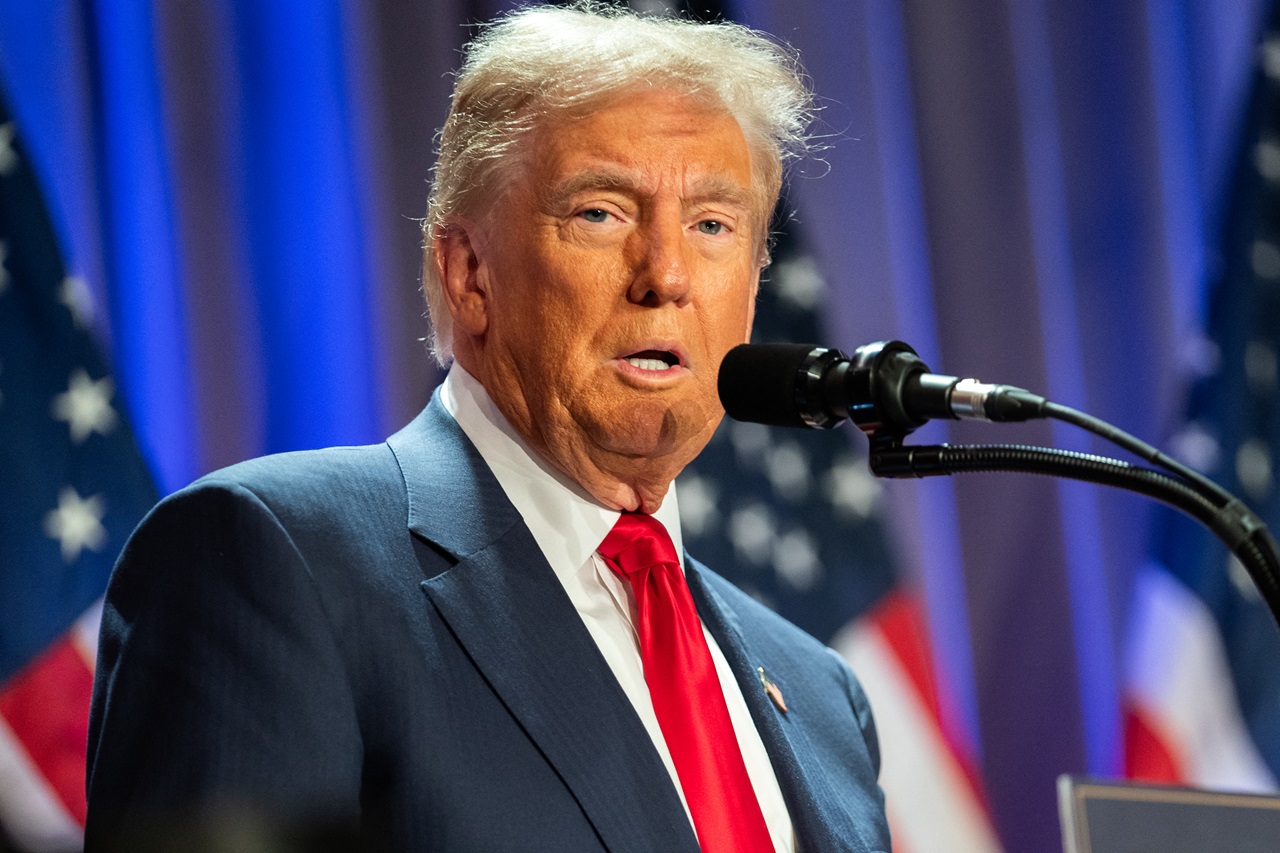
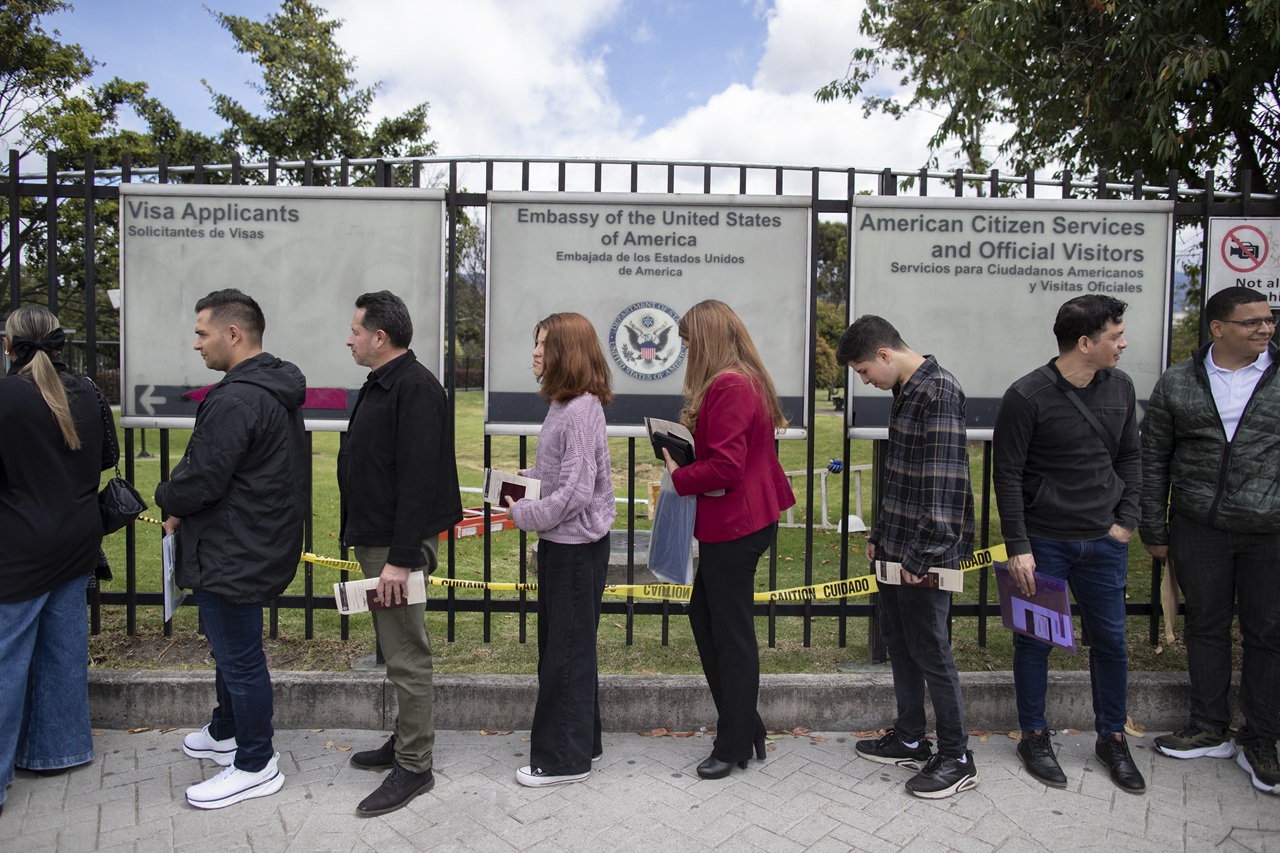
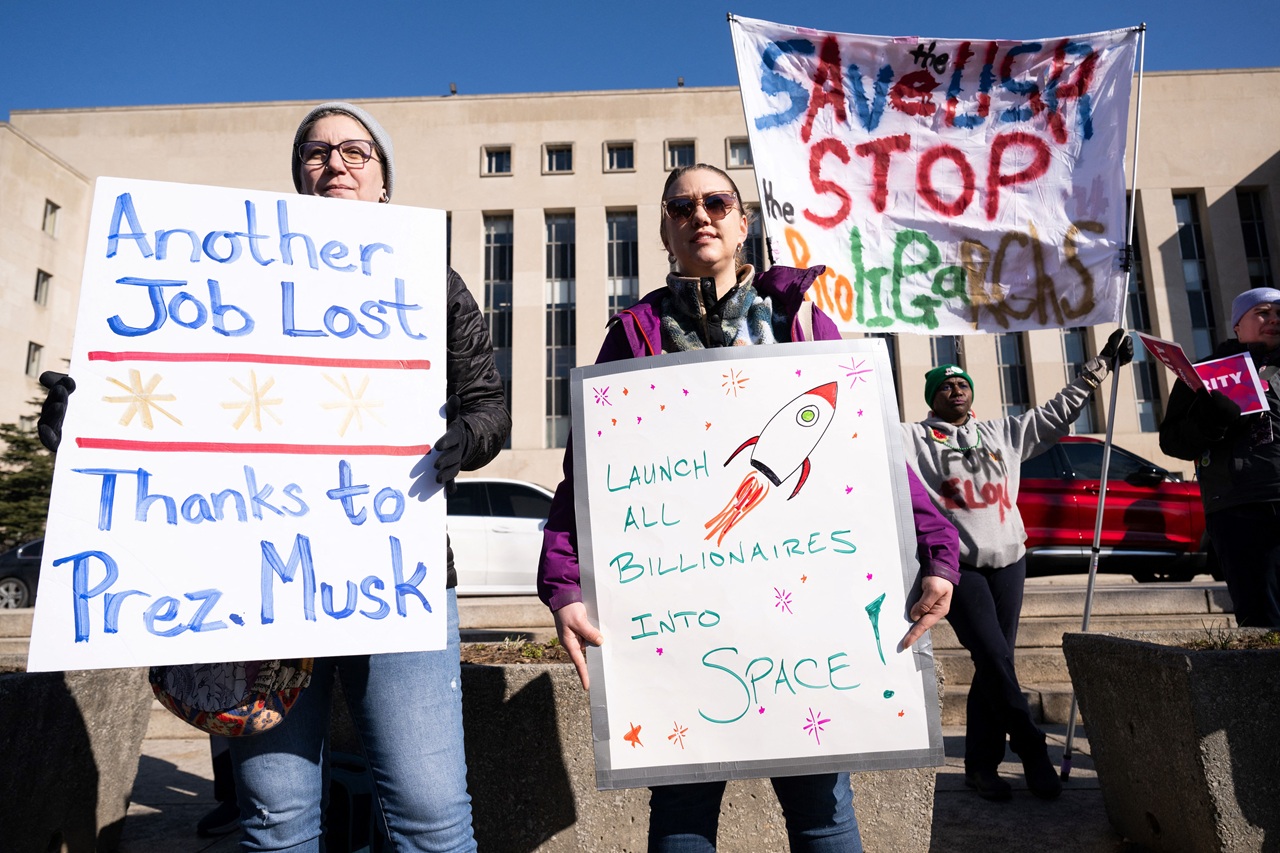
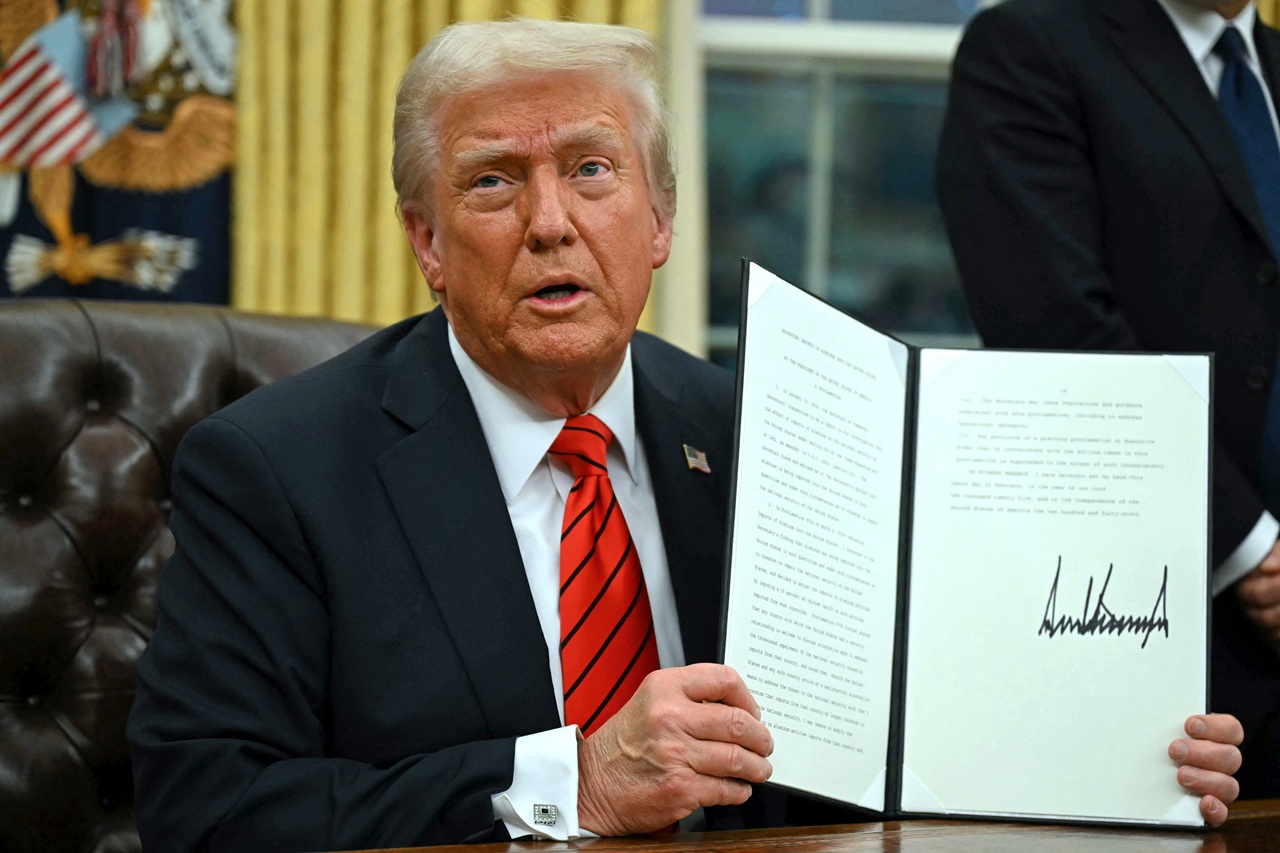
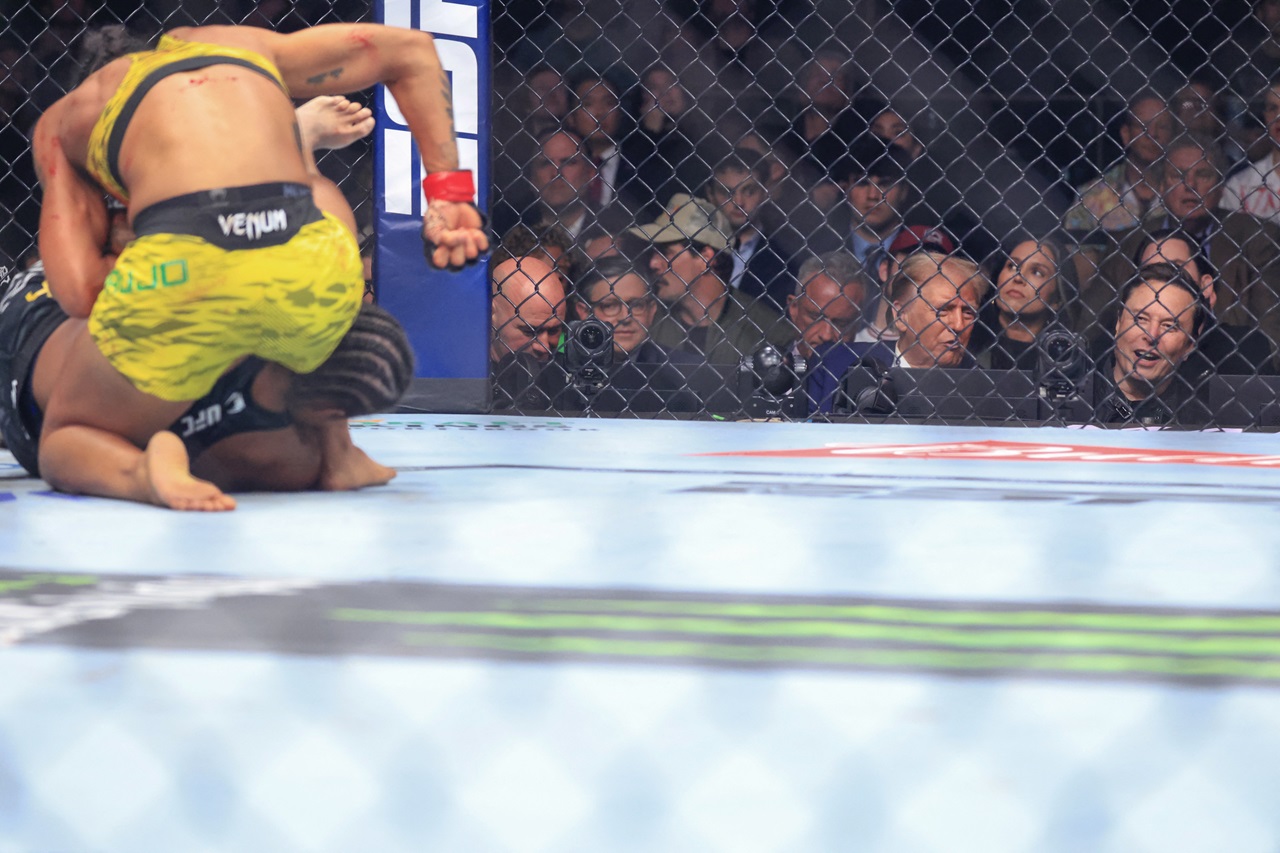

LEAVE A COMMENT: